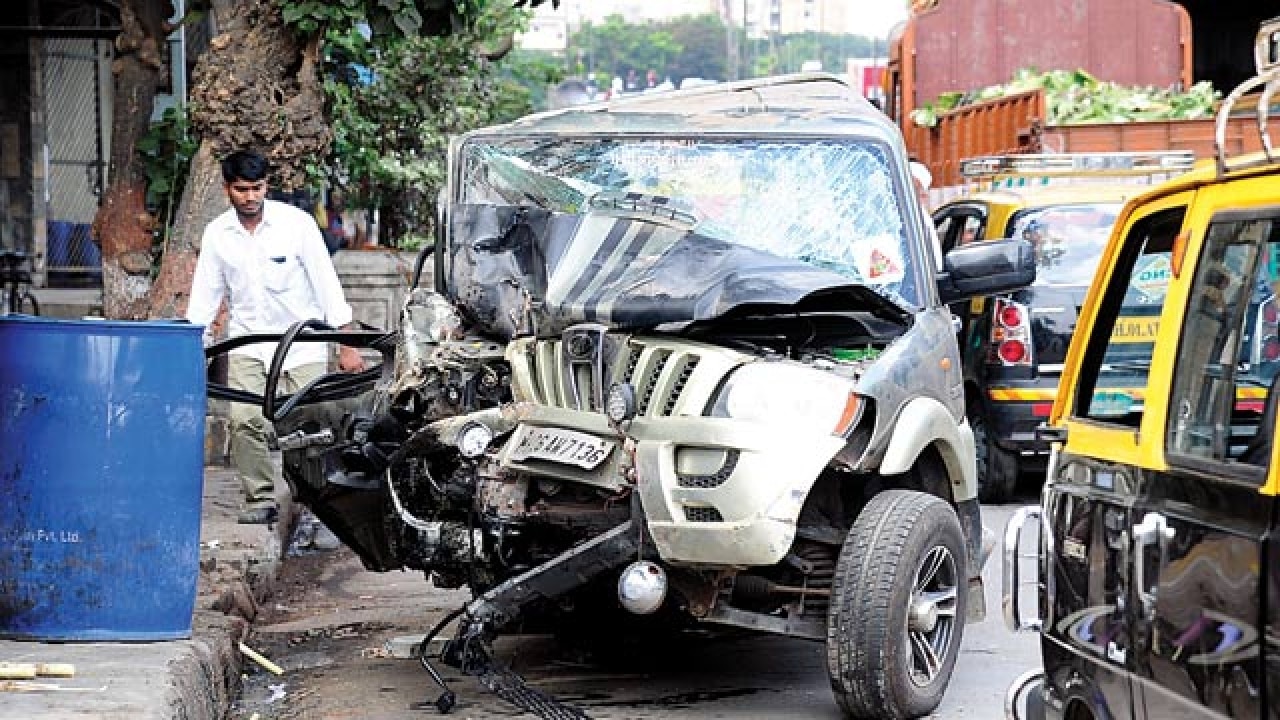
The state of road safety of a society — good, bad or ugly — reflects its character and that of its public administration. Most of us have seen swarming herds of goats or cows crossing a busy public road. The herd is regulated by a single herdsman who, wielding a simple stick, clears the road within moments. Regular traffic on any road in India looks much the same. Except that the shepherd is mostly missing!
The chaotic traffic scene with speeding, lane jumping, giving no right-of-way on a roundabout, overtaking and driving on the wrong side, compulsive mobile use, drunken driving, jumping traffic lights with impunity, ignoring zebra crossings, not using seat belts and helmets, bikers driving on the footpaths, power-honking, most drivers oblivious and unconcerned about the statutory road signage…and so on is a regular affair. Cyclists and pedestrians, amidst this chaos, are at the mercy of their gods.
Road crashes are on an increase for decades now. Two things are responsible for this state of affairs. First, the attitude of the drivers is mostly selfish and they are on a short fuse. Second, the concerned authorities seem largely indifferent to a very vital public duty, and also not firm in taking action against traffic violations.
Other reasons are negligible road markings, speed inducing flyways with little protective devices, poorly displayed signage, dug up debris lying unattended, broken footpaths and traffic bifurcating triangle and so on. And of course, the standard alibi of a shortage of police personnel. The shocking fact of an average 17 people dying every hour and 400 everyday in the country; of Delhi having the highest number of road deaths; of road crashes killing more people than terror attacks — has become routine data, which no longer stirs. Does it move the ruling governments that the top 13 states in India account for 86 per cent of road accidents?
Most road accidents occur due to human error. How is it then that no successful solutions have been found through human ingenuity? It is nothing short of a national shame. Can India’s capital, Delhi, boast of a single road as a model of safe infrastructure of international standards? Road safety is an unrecognised national concern, thus far, despite increased focus and expenditure on building modern transportation infrastructure. The World Bank treats road safety as a public health crisis and a serious challenge to the development objectives of the low and middle-income countries.
To start with, let each State/ UT in India formally notify a few zones of excellence (ZoE) in road safety. Each ZoE should initially comprise areas of known black spots and cover a certain length of roads/ highways. No violation of traffic norms should be tolerated within a given ZoE. This will be ensured by maintaining a round-the-clock vigil.
All deficiencies must be taken care of daily by the concerned authorities — such as detailed lane markings, functional traffic lights, rumble strips and stop lines before the zebra paths, speed limits and direction sign boards, well-maintained and obstruction-free footpaths, separate lane for cyclists, pedestrians, and emergency services vehicles (suitably marked within the limits of space available). All traffic light junctions and accident prone areas must be manned by a larger number of traffic police personnel, assisted by members of Home Guards, retired para-military personnel and unemployed youth, specially recruited for the purpose.
A preferable, effective penalty for most traffic offences should be detaining of the vehicle involved for 24 hours, in addition to any other penalty provided by law.
Each government can nominate, or invite volunteering senior (civil/ police) officers, to take over as CEO of a ZoE. They should be empowered to devise their own model. Such officers shall be held accountable for the designated targets.
It is clear that undisciplined behaviour on public roads needs to be corrected by an impeccable enforcement mechanism. Simultaneously, an awareness and education programme is a crucial factor for the success of this mission. To conclude by borrowing from PM Modi’s sentiment: whenever any initiative becomes a mass movement, results follow.
The author is a member of the National Road Safety Council